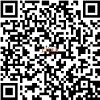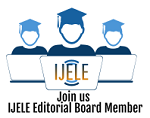(2) * Erikson Saragih
(3) Elina Lulu Bimawati Rumapea
*corresponding author
AbstractEven though there have been numerous studies on the use of critical thinking in language learning, research that specifically explores the relationship between critical thinking skills and listening comprehension techniques is still infrequently performed in the context of learning English in Indonesia. This study aims to reveal the correlation between EFL students' listening comprehension strategies and their critical thinking ability. Fifty Indonesian EFL students of both sexes were chosen as the study's participants to accomplish this. They were all advanced students that were chosen through cluster sampling. The Critical Thinking Questionnaire (CTQ) and the Listening Comprehension Strategies Questionnaire were the two tools used (RCSQ). On the first day, the researcher thoroughly explained the instructions for this survey and gave the participants a CTQ to assess the tactics they had used. LCSQ was delivered to them on the second day. All of the questions had to be answered within the allotted time by the participants. Fortunately, none of the students missed any of the gathered data, which will improve the accuracy of the findings. The study's conclusions showed a strong correlation between advanced EFL students' listening comprehension techniques and their capacity for critical thought. Results may be important because they help students overcome any challenges they may have with particular language abilities by identifying the tactics they use.
KeywordsCritical thinking; EFL learners; listening skill; listening comprehension strategies
|
DOIhttps://doi.org/10.31763/ijele.v5i1.827 |
Article metrics10.31763/ijele.v5i1.827 Abstract views : 1966 | PDF views : 865 |
Cite |
Full Text Download Download
|
References
[1] L. East, K. Peters, E. Halcomb, D. Raymond, and Y. Salamonson, “Evaluating Objective Structured Clinical Assessment (OSCA) inundergraduate nursing,†Nurse Educ. Pract., vol. 14, no. 5, pp. 461–467, 2014, doi: 10.1016/j.nepr.2014.03.005.
[2] T. K. Ngang and T. C. Chan, “The Importance of Ethics, Moral and Professional Skills of Novice Teachers,†Procedia - Soc. Behav. Sci., vol. 205, no. May, pp. 8–12, 2015, doi: 10.1016/j.sbspro.2015.09.004.
[3] J. H. Lee and M. Portillo, “Transferability of creative self-belief across domains:The differential effects of a creativity course for university students,†Think. Ski. Creat., vol. 43, Mar. 2022, doi: 10.1016/j.tsc.2021.100996.
[4] L. H. Van, C. S. Li, and R. Wan, “Critical reading in higher education: A systematic review,†Think. Ski. Creat., vol. 44, p. 101028, Jun. 2022, doi: 10.1016/J.TSC.2022.101028.
[5] S. R. Goldman, C. Snow, and S. Vaughn, “Common Themes in Teaching Reading for Understanding: Lessons From Three Projects,†J. Adolesc. Adult Lit., vol. 60, no. 3, pp. 255–264, 2016, doi: 10.1002/jaal.586.
[6] B. D. Wale and K. S. Bishaw, “Effects of using inquiry-based learning on EFL students’ critical thinking skills,†Asian-Pacific J. Second Foreign Lang. Educ., vol. 5, no. 1, 2020, doi: 10.1186/s40862-020-00090-2.
[7] P. Turiman, J. Omar, A. M. Daud, and K. Osman, “Fostering the 21st Century Skills through Scientific Literacy and Science Process Skills,†Procedia - Soc. Behav. Sci., vol. 59, pp. 110–116, 2012, doi: 10.1016/j.sbspro.2012.09.253.
[8] C. A. Kilgo, J. K. Ezell Sheets, and E. T. Pascarella, “The link between high-impact practices and student learning: some longitudinal evidence,†High. Educ., vol. 69, no. 4, pp. 509–525, 2015, doi: 10.1007/s10734-014-9788-z.
[9] O. Robutti et al., “ICME international survey on teachers working and learning through collaboration: June 2016,†ZDM - Math. Educ., vol. 48, no. 5, pp. 651–690, 2016, doi: 10.1007/s11858-016-0797-5.
[10] R. Tusianah et al., “An integrative review of self-efficacy: What factors enhance and impair it?,†WSEAS Trans. Bus. Econ., vol. 18, pp. 1057–1072, 2021, doi: 10.37394/23207.2021.18.100.
[11] P. Larrivée and C. Lee, “Negation and polarity: Experimental perspectives,†Negation Polarity Exp. Perspect., vol. 1, pp. 1–359, 2015, doi: 10.1007/978-3-319-17464-8.
[12] A. L. Oros, “Let’s debate: Active learning encourages student participation and critical thinking,†J. Polit. Sci. Educ., vol. 3, no. 3, pp. 293–311, 2007, doi: 10.1080/15512160701558273.
[13] C. B. Floyd, “Critical thinking in a second language,†High. Educ. Res. Dev., vol. 30, no. 3, pp. 289–302, 2011, doi: 10.1080/07294360.2010.501076.
[14] Z. C. Y. Chan, “A systematic review of critical thinking in nursing education,†Nurse Educ. Today, vol. 33, no. 3, pp. 236–240, 2013, doi: 10.1016/j.nedt.2013.01.007.
[15] R. Zhang, “Exploring blended learning experiences through the community of inquiry framework,†Lang. Learn. Technol., vol. 24, no. 1, pp. 38–53, 2020, doi: 10.125/44707.
[16] A. Shaw et al., “Thinking critically about critical thinking: validating the Russian HEIghten® critical thinking assessment,†Stud. High. Educ., vol. 45, no. 9, pp. 1933–1948, 2020, doi: 10.1080/03075079.2019.1672640.
[17] D. Rear, “One size fits all? The limitations of standardised assessment in critical thinking,†Assess. Eval. High. Educ., vol. 44, no. 5, pp. 664–675, 2019, doi: 10.1080/02602938.2018.1526255.
[18] N. El Soufi and B. H. See, “Does explicit teaching of critical thinking improve critical thinking skills of English language learners in higher education? A critical review of causal evidence,†Stud. Educ. Eval., vol. 60, no. January, pp. 140–162, 2019, doi: 10.1016/j.stueduc.2018.12.006.
[19] Ö. Polat and E. Aydın, “The effect of mind mapping on young children’s critical thinking skills,†Think. Ski. Creat., vol. 38, no. September, 2020, doi: 10.1016/j.tsc.2020.100743.
[20] A. F. T. Al-Azzemy and D. A. H. Al-Jamal, “Evaluating cognitive, metacognitive and social listening comprehension teaching strategies in Kuwaiti classrooms,†Heliyon, vol. 5, no. 2, p. e01264, 2019, doi: 10.1016/j.heliyon.2019.e01264.
[21] M. Din, “Evaluating university students’ critical thinking ability as reflected in their critical reading skill: A study at bachelor level in Pakistan,†Think. Ski. Creat., vol. 35, no. January, p. 100627, 2020, doi: 10.1016/j.tsc.2020.100627.
[22] I. Sasson, I. Yehuda, and N. Malkinson, “Fostering the skills of critical thinking and question-posing in a project-based learning environment,†Think. Ski. Creat., vol. 29, no. August, pp. 203–212, 2018, doi: 10.1016/j.tsc.2018.08.001.
[23] C. Y. Chang, P. Panjaburee, H. C. Lin, C. L. Lai, and G. H. Hwang, “Effects of online strategies on students’ learning performance, self-efficacy, self-regulation and critical thinking in university online courses,†Educ. Technol. Res. Dev., vol. 70, no. 1, pp. 185–204, 2022, doi: 10.1007/s11423-021-10071-y.
[24] S. A. Seibert, “Problem-based learning: A strategy to foster generation Z’s critical thinking and perseverance,†Teach. Learn. Nurs., vol. 16, no. 1, pp. 85–88, 2021, doi: 10.1016/j.teln.2020.09.002.
[25] K. Y. L. Ku, Q. Kong, Y. Song, L. Deng, Y. Kang, and A. Hu, “What predicts adolescents’ critical thinking about real-life news? The roles of social media news consumption and news media literacy,†Think. Ski. Creat., vol. 33, no. January, p. 100570, 2019, doi: 10.1016/j.tsc.2019.05.004.
[26] A. Purba, S. E. E. Girsang, T. F. Silalahi, and E. Saragih, “Improving nurses’ ESP communicative competence by digital storytelling method,†Int. J. Educ. Learn., vol. 4, no. 1, pp. 1–12, 2022, doi: 10.31763/ijele.v4i1.530.
Refbacks
- There are currently no refbacks.
Copyright (c) 2023 Erikson Saragih

This work is licensed under a Creative Commons Attribution-ShareAlike 4.0 International License.

International Journal of Education and Learning
ISSNÂ 2684-9240
Published by Association for Scientific Computing Electronics and Engineering (ASCEE)
W : http://pubs2.ascee.org/index.php/ijele
E : zalik@ascee.org

This work is licensed under a Creative Commons Attribution-ShareAlike 4.0 International License.





















